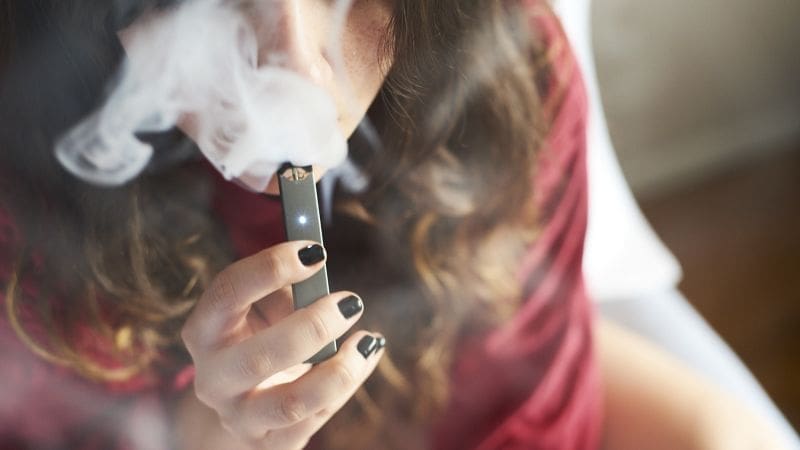The United States Supreme Court engaged in rigorous questioning of the Food and Drug Administration (FDA) on Monday, assessing whether the agency adhered to legal protocols in its attempt to restrict flavored e-cigarettes from hitting the shelves. This examination comes amid a lawsuit brought forward by a multibillion-dollar industry under increased scrutiny due to the popularity of its products among school-aged children.
Throughout the session, the court’s liberal members, along with possible support from some conservative justices, appeared inclined towards a resolution that permits the incoming Trump administration to review actions taken by the FDA against flavored vaping products. Public health advocates have consistently voiced concerns over the rising rates of vaping among youth, pointing to FDA statistics indicating that 19% of high school students and 4.7% of middle school students were vaping in 2020—figures significantly higher than those for traditional smoking.
The industry has been challenged by the FDA’s refusal to approve flavors presumably appealing to minors, such as “Pink Lemonade” and “Peachy Strawberry.” In a broader context, these denials are wrapped in political discourse, with President-elect Donald Trump expressing commitment to “save vaping,” raising questions about agency power that the court’s conservative majority has aimed to limit.
Conservative justices like Clarence Thomas voiced concerns about the consistency of the evidence standards applied by the FDA during market application reviews, suggesting a lack of clarity in the agency’s guidelines. Thomas noted, “Either they weren’t clear or you changed the guidance as time went on.” In response, Curtis Gannon, representing the FDA, maintained that the regulations were always clear about the evidence needed.
Justice Samuel Alito echoed concerns over the FDA’s application review process, suggesting the agency was not clear about what constituted evidence of public health benefit, yet Justice Brett Kavanaugh seemed to realize the uncertainty involved in decision-making by large regulatory bodies, hinting at potential support for the FDA. Justice Sonia Sotomayor pointedly addressed the addictive nature of nicotine in these products, highlighting the impacts on both adults and children.
The vaping industry argues that its flavored products assist users in quitting smoking, but according to Justice Elena Kagan, it should have been self-evident that the FDA needed comprehensive evidence of health benefits, reflecting the agency’s skepticism about such claims. In 2009, Congress empowered the FDA with the authority to regulate tobacco products, and by 2016, e-cigarettes were classified under this category, requiring comprehensive market evaluations.
The tension around the FDA’s regulatory approach was compounded by a decision from the 5th US Circuit Court of Appeals in January, which criticized the agency for creating a “regulatory switcheroo,” complicating the approval process for manufacturers. Although this case favored the industry, seven other appeals courts have upheld the FDA’s actions.
Amid these legal battles, industry representatives like Eric Heyer noted the potential changes with Trump’s administration, which has previously offered conflicting messages about regulation. Meanwhile, Denny Henigan of the Campaign for Tobacco-Free Kids emphasized that any regulatory adjustments by Trump must be scientifically justified in courts. “The science is clear; flavored products disproportionately attract young users,” Henigan stated.
As the Supreme Court contemplates this complex case, it stands at the intersection of public health, regulatory authority, and political influence. The outcome remains uncertain but is poised to impact both regulatory measures and the multibillion-dollar vaping industry significantly.
Source: CNN














